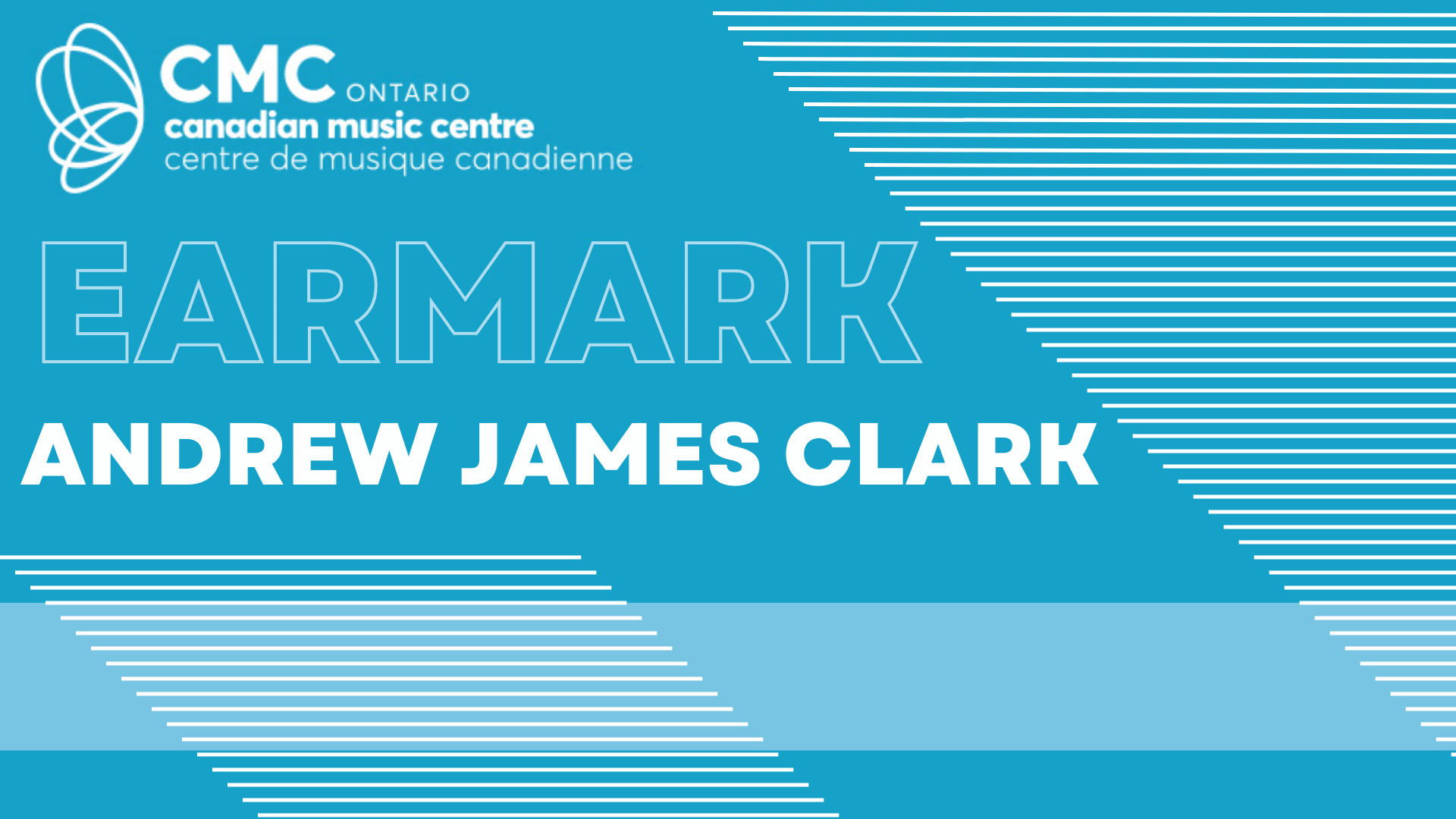In this instalment of Earmark, we catch up with Associate Composer Andrew James Clark about classical music as a way to organize your life, serendipitous encounters when purchasing music and the non-universality of music.
What got you excited about music at a young age?
Music itself was exciting enough. When I was very young I had an Mp3 player which I filled with Beethoven symphonies and other popular orchestral music. Nothing else was able to captivate me the way these pieces could, and for whatever reason, life made sense while listening. As a result, classical music quickly became a tool for me to organize and better process the world around me. This particular Mp3 also had a built in radio which I would use almost every evening to tune into other classical music stations and expand my sense of the repertoire.
What is an important music concert/event you attended?
In August 2015, I spent the summer learning a new language, and after my final lesson, as a reward to myself, I went to Remenyi’s and bought the score for the complete Bartok String Quartets. When the cashier saw what I was purchasing he said “oh! You’re going tonight?”. I didn’t know what he was talking about, but he explained to me that in a few hours, the Borromeo String Quartet would be performing a Bartok String Quartet marathon across the street as part of the Toronto Summer Music Festival. I immediately changed my plans and attended, and the music, the players and even the response from the audience left a deep impact on me.
What have you been listening to lately? Does any of this make its way into your music?
I’ve been listening to the Piano Estudos of Mozart Camargo Guarnieri. I stumbled upon Guarnieri’s music during the government lockdowns and immediately realized that it contained answers to many questions I’d been asking for years regarding meter and form. Guarnieri uses metric permutations to communicate structural markers to the listener. I’d seen small isolated instances of this in other music, but never to the extent that can be found Guarnieri’s Estudos. Guarnieri’s music hasn’t altered my music per say, but I have become more confident in my own compositional syntax since studying him.
What is a significant insight that a mentor shared with you that has guided your practice?
The most significant insight I’ve ever received from a mentor was that “no one cares what I think”. When I was younger, I was very quick to impart my opinions on others, and I was constantly telling people how things ought to be, especially in regards to music. I inevitably learned however, that actions speak louder words. Explaining yourself to others never works. No one listens. It’s much more effective to act our your ideas and beliefs, and let the results speak for themselves.
What is the most important lesson you would share with your younger self in regards to your music?
I wish I had of known that people hear music differently. As a young musician I believed that music was a universal language and was a reliable tool for communication. I now know this is not the case. Just because I can hear a bass line clearly doesn’t mean someone else can, and just because I experience a piece of music in a certain meter doesn’t mean others feel the same. I no longer assume to know what anyone is going to hear when they listen to music, and I’ve grown to be much more appreciative when I encounter people who are hearing the same things I hear.
Tell me about a project/work of yours that you are particularly proud of.
I’m particularly proud of my 2019 piece Heliacal Rising (written as part of the HPO Fellowship Program), because it was the first time I managed to notate highly syncopated rhythms and rapid metric changes in a manner that a large ensemble could perform with very little rehearsal time. Asymmetrical rhythms and meter have always been important to me, but for practical reasons they are difficult to execute in large groups, and for a time I was worried that my musical ideas might only work for soloists and chamber music. Fortunately in Heliacal Rising I developed an alternative way to notate my rhythmic ideas that didn’t compromise my style. I’ve continued to use this system of notation when writing for large ensembles ever since.

